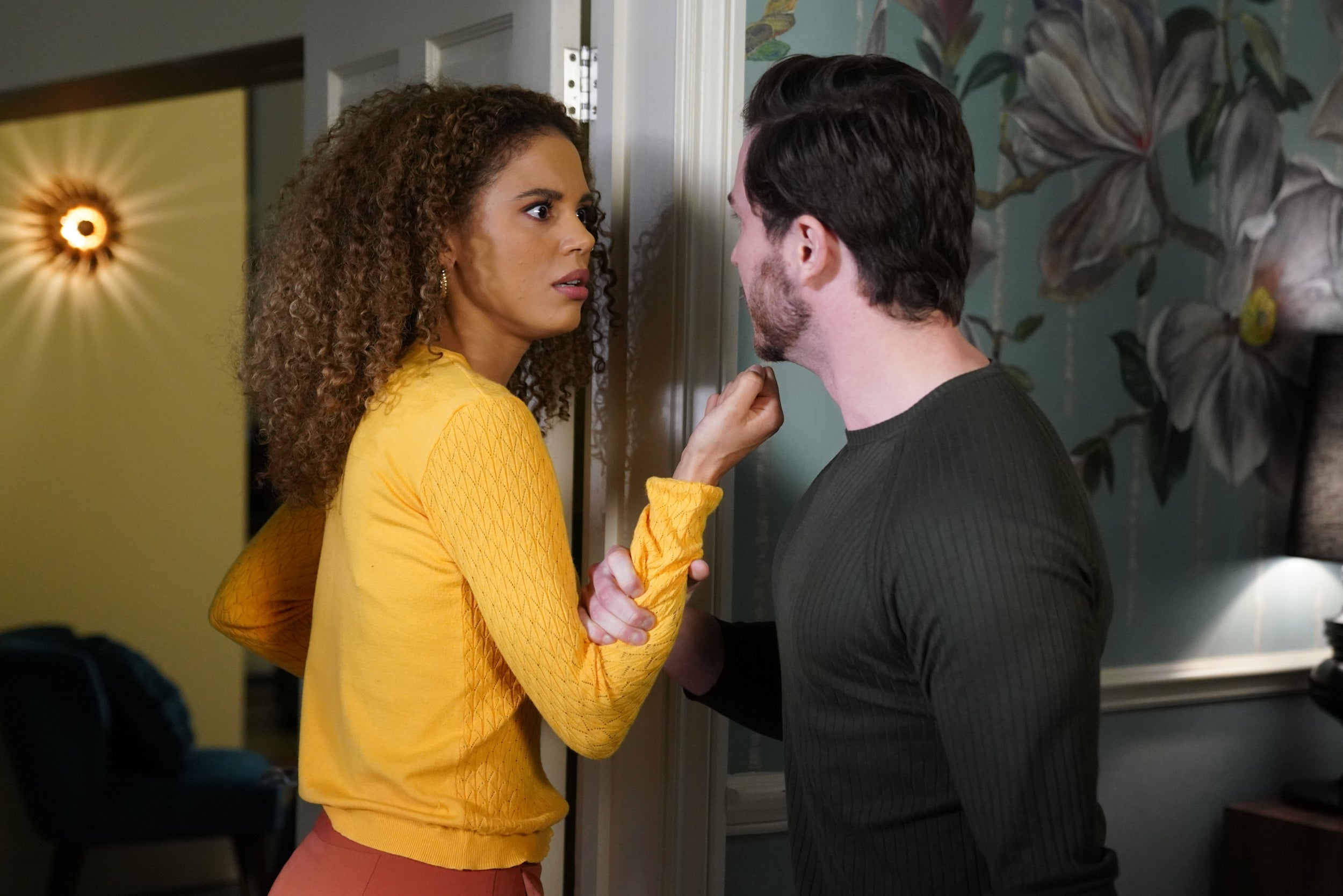Eastenders’ imminent murder storyline is proof that soaps can be pioneering and progressive
Traditionally, we look to soaps for escapism and entertainment, writes Fiona Sturges. But with their vast audiences, they are in an ideal position to make serious issues a national talking point


Your support helps us to tell the story
From reproductive rights to climate change to Big Tech, The Independent is on the ground when the story is developing. Whether it's investigating the financials of Elon Musk's pro-Trump PAC or producing our latest documentary, 'The A Word', which shines a light on the American women fighting for reproductive rights, we know how important it is to parse out the facts from the messaging.
At such a critical moment in US history, we need reporters on the ground. Your donation allows us to keep sending journalists to speak to both sides of the story.
The Independent is trusted by Americans across the entire political spectrum. And unlike many other quality news outlets, we choose not to lock Americans out of our reporting and analysis with paywalls. We believe quality journalism should be available to everyone, paid for by those who can afford it.
Your support makes all the difference.Soap operas are trash, or so we are led to believe. The accepted wisdom is that they lay waste to the IQs of those who watch them, and our time would be better spent sitting in a hair shirt reading Dostoyevsky. But those paying attention will know that while they are, on occasion, poorly written and creakily acted, they can also be pioneering, politically potent and unexpectedly progressive. Think Brookside’s child abuse storyline; Corrie’s treatment of male rape; or Emmerdale’s portrait of dementia. You want public service broadcasting? Look no further than EastEnders’ first gay kiss back in 1989, or its demystification of HIV through the character of Mark Fowler in 1990. More recently, it has been praised by charities for its treatment of knife crime, sexual assault and alcoholism.
This week has seen the return of EastEnders after a Covid-enforced hiatus. It brings with it another landmark storyline, this time on domestic abuse. When production was halted back in March, the soap was midway through a storyline featuring Chantelle Atkins (Jessica Plummer) and her husband, Gray (Toby-Alexander Smith). On the face of it, their life was the vision of Instagram-sponsored perfection – they had the smart car, the stylish home and adorable children. Gray, a lawyer who favours three-piece suits over Albert Square’s more customary athleisure uniform, would bring flowers home for his wife, or whisk her away for a romantic weekend. But behind the scenes, we learnt, he was controlling and unpredictable. He prevented her from working, and put a tracking device on her car. He would also hit and punch her, taking care not to leave visible bruises. In December, after a disagreement over whether they should try for another baby following a miscarriage, he dragged her upstairs and raped her.
Now we learn that, during lockdown, Gray has stepped up his campaign of violence and control. Later this month, he will murder his wife. (It’s unusual for soaps to release such details, but in warning us of what is to come, producers are rightly mindful not to trigger viewers.) The storyline chimes grimly with reports of a real-life global surge in domestic abuse during lockdown. Calls and contacts to the National Domestic Abuse Helpline in the UK rose by almost 50 per cent in April. The organisation Counting Dead Women reported 14 domestic abuse killings of women and children in the first three weeks of lockdown, where, in the same period in previous years, it recorded an average of five. The first week of July brought record numbers of women seeking emergency accommodation, up 54 per cent from the previous year.
This isn’t the first time we’ve seen domestic violence covered by the soap. Longstanding viewers will recall the trials of Little Mo, the quietest of the Slater sisters, and Trevor, her abusive husband who famously made her eat her Christmas dinner off the floor. It is, however, the first time EastEnders has dug deeply into the psychology of abuse. Where Trevor was the archetypal bad guy, a snarling, hard-drinking bully, Gray is, on the surface, gentle and charismatic, reflecting the fact that abusers will often go to great lengths to charm those around them, and to discredit and undermine those they hurt.
Such portraits of domestic abuse aren’t confined to soap operas, of course. Paddy Considine’s astonishing 2011 film Tyrannosaur featured Olivia Colman as Hannah, who endures relentless suffering at the hands of her husband. Researching her character, Colman worked closely with Refuge, and later narrated the BBC documentary Behind Closed Doors, which told the stories of three abused women over 12 months as they sought help through the justice system.
More recently, Big Little Lies, the glitzy HBO series starring Nicole Kidman, Reese Witherspoon and Zoe Kravitz, provided an unsettling portrait of spousal violence amid the marble-clad mansions of Monterey. Kidman’s Celeste, a lawyer, was smart and successful, and had friends who would rush to her aid in a crisis. She was also beaten by her husband, a fact she kept secret from all but her therapist. This year’s remake of “The Outside Dog”, from Alan Bennett’s Talking Heads series, cast Rochenda Sandall as Marjory, who contemplates her husband’s long absences. When Julie Walters took the role in 1998, she played up the script’s comic aspects; Sandall chose to highlight the undercurrent of violence in Marjory’s relationship, and her isolation from the outside world. What unites these more recent portrayals is a desire to understand domestic violence rather than offer it up as a plot device in a suspense drama (see 1991’s Sleeping with the Enemy). They look at the power dynamics of abuse and the erosion of self-worth, and attempt to answer the frequently asked question: “Why don’t you just leave?”
There is evidence, too, that fictional drama can have a positive effect on victims who may recognise elements of their own situation and feel empowered to seek help – following a storyline about coercive control in the BBC Radio 4 soap The Archers, the National Domestic Abuse Helpline reported a rise in calls. With their vast audiences, soap operas in particular are in an ideal position to raise awareness on serious issues and make them a national talking point. Traditionally, we look to soaps for escapism and entertainment though that doesn’t mean they can’t have important, impactful moments. We dismiss them at our peril.
The UK Domestic Abuse Helpline can be reached by calling 0808 2000 247. Visit nationaldahelpline.org.uk
Join our commenting forum
Join thought-provoking conversations, follow other Independent readers and see their replies
Comments